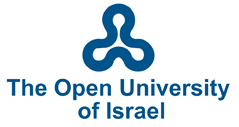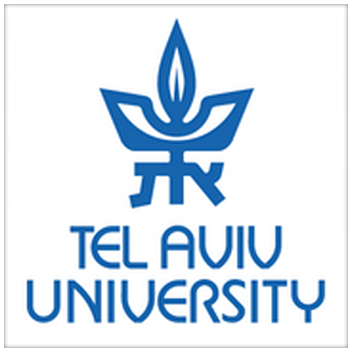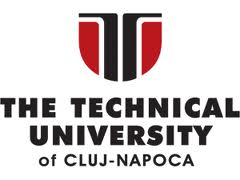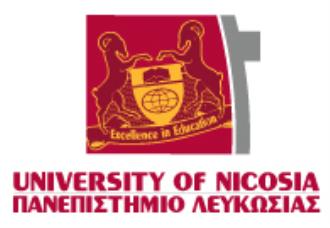Tempus ECOSTAR Partners
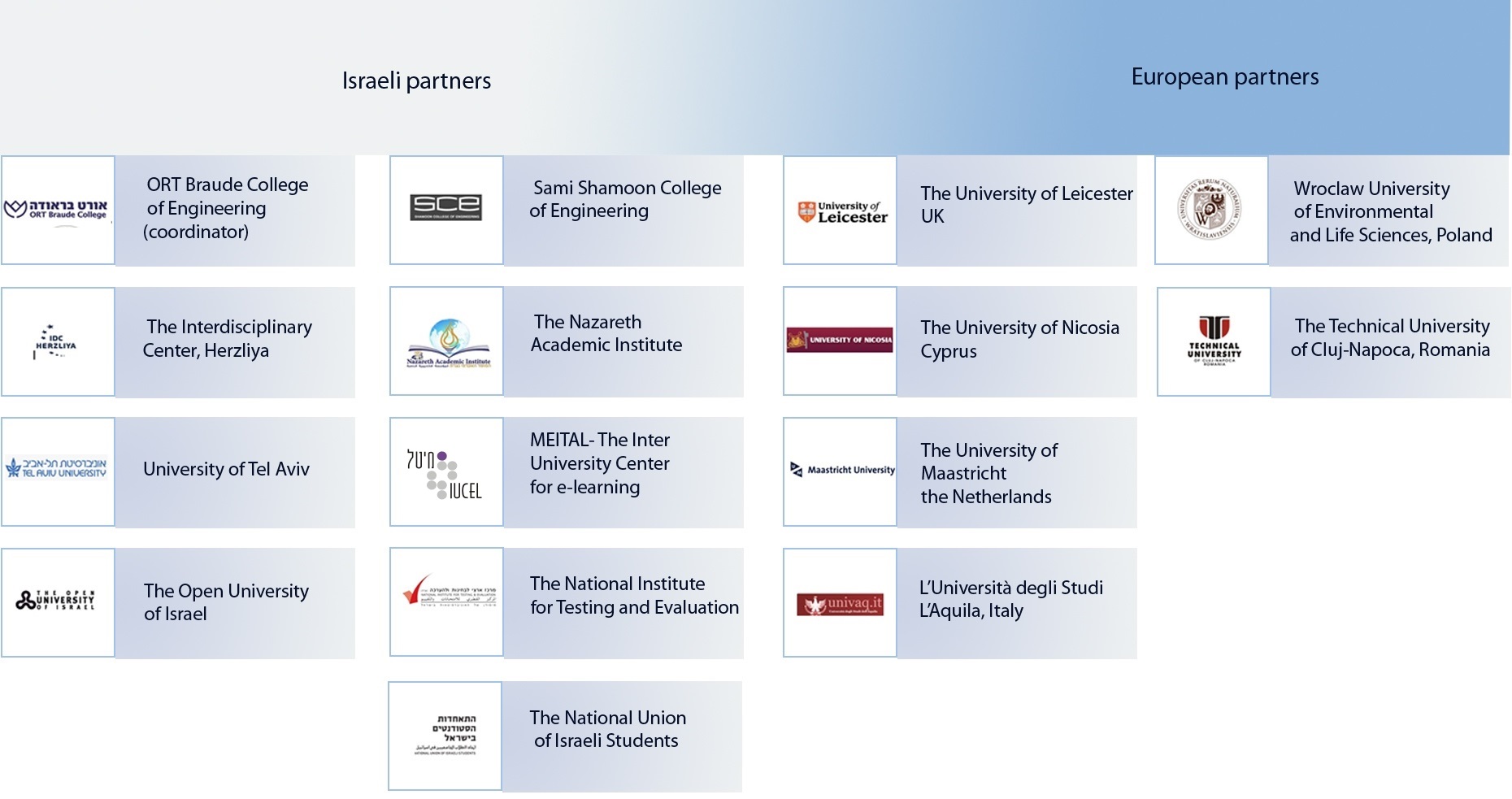
I |
|---|
Israeli Inter-University Computation Center (IUCC) | ||
|---|---|---|
MEITAL is the Inter-University Center for e-Learning (IUCEL), which is part of the Israeli Inter-University Computation Center located at Tel-Aviv University. MEITAL assists Israeli institutions of higher education – universities and academic colleges – in advancing the use of e-learning technologies. MEITAL creates opportunities for institutional connections and collaboration among academic institutes in Israel. Most of MEITAL's activity is conducted through several workgroups whose members are representatives of all the institutions that take part in MEITAL, as well as experts in specific areas. The workgroups deal with issues such as: learning environments, new technologies, methodologies and staff development, specific content areas, intellectual property rights, and common standards. MEITAL also provides central platforms (asynchronous and synchronous) for experiencing learning technologies and a central information website, and runs regular national conferences and seminars. (The role of the organisation in the project. ) With its experience of the past years in creating and advancing e-learning technologies and collaboration with higher education institutions in Israel, MEITAL will work with all the partners to promote and enable the “English as the Cornerstone of Sustainable Technology and Research” project as a model of e-learning collaboration. Based on its experience with OER and open access protocols, MEITAL will assist in finding the best technical solutions and framework, including a collaborative platform, for the achievement of the project's aims.
| ||
M |
|---|
Maastricht University (UM) | ||
|---|---|---|
(The role of the organisation in the project.) The Language Centre will deliver its expertise in the field of English-medium instruction, particularly in WP4 of the proposed project. This expertise comprises, among other things, integrated content and language learning in higher education (ICLHE (CLIL)), design knowledge, processes and techniques that assist the development of content-related language during content courses, as well as advice on developing staff competences for teaching through English. UM will contribute actively to all areas of the ECOSTAR project and participate in all project meetings and activities. | ||
N |
|---|
National Institute for Testing and Evaluation (NITE) | ||
|---|---|---|
The National Institute for Testing and Evaluation (NITE) was established in 1981 by the Associated Heads of the Universities in Israel in order to centralize the development and administration of admissions and placement tests. The founding of NITE made it possible to bring together leading professionals in the field of psychometrics and measurement with a view to enhancing the quality and efficiency of university admissions testing on a national scale. Since then, NITE has been instrumental in the university admissions process, providing a uniform testing program. NITE administers proficiency tests in a number of other areas, including an English proficiency test used by universities for admissions and for placement of applicants in language courses. NITE is a member of many international organizations such as AERA, NCME, IAEA and ITC, and is involved in international projects in the field of educational assessment in several countries. (The role of the organisation in the project. ) NITE will be responsible for developing and scoring the assessments related to the projected reform in the teaching of English at the tertiary level. In addition to a standardized placement test currently used by many universities and colleges in Israel, NITE will be able to provide standardized, uniform exit tests for all students. The development of high-quality, standardized placement and exit exams in English in this project can serve as a basis for the export of these tests to Europe and to neighbouring countries. The tests can be adapted to suit professional, not only academic, settings. In the future, this test could be linked – through a series of validity studies – to the Common European Framework of Reference for languages. This would serve to better define language proficiency levels and interpret language qualifications in Israel, in Europe and in the world at large. | ||
National Union of Israeli Students (NUIS) | ||
|---|---|---|
The National Union of Israeli students (NUIS) is an umbrella organization representing 300,000 students in 60 HEIs and vocational schools throughout Israel. NUIS's goal is to defend the rights and interests of students from all sectors in Israel and to promote students’ status in Israel. In addition, NUIS influences the daily agenda in all aspects of student life and Higher Education, aiming towards shaping the next generation of leaders. NUIS acts to guarantee the quality and growth of the Higher Education system in Israel and the accessibility to Higher Education by all levels in society. Moreover, NUIS strengthens and promotes the connection between students and youth organizations in Israel and abroad and promotes Youth Authority Establishments. NUIS promotes and enhances the social awareness and social involvement of students in society and leads social projects. NUIS has supported the promotion of gender equality on campus for the past few years. (The role of the organisation in the project. ) The National Union of Israeli Students will represent the students in all discussions on reforms to the teaching of English as a Foreign Language at HEIs in Israel as well as in the formulation of a national framework for English Medium Instruction. We will participate in the collection of data for the needs and context analyses and use our networking facilities for purposes of disseminating the project among the student body and we will contribute towards the exploitation and sustainability of the project. We will participate in all relevant Ecostar meetings including the formal consortium meetings and will contribute to the overall quality of the project. | ||
O |
|---|
ORT Braude (OBC) | |||
|---|---|---|---|
ORT Braude College (OBC) was established in 1988 in the small Galilean city of Karmiel in the northern periphery of Israel with the goal of developing an academic center to teach engineering while working in cooperation with industry. The chosen geographic location is in direct response to national and regional needs: OBC is an academic center for the region; increases accessibility to higher education in the north of the country for students from a wide range of socioeconomic and cultural backgrounds; and contributes to the enrichment of the educational system of the Galilee. OBC considers English to be a vital tool for engineers in the 21st century; its English department has been involved for many years in initiatives aimed at improving the standard of English teaching. The College strives for excellence in teaching and research in the fields of engineering and science. We achieve this by empowering the individual, regardless of background, and by establishing ties with industry. (The role of the organisation in the project. ) With experience gained from TEMPUS-EFA, OBC will be responsible for coordinating activities among Israeli and European partners and will manage the project financially. With EU and Israeli partners OBC will develop a national framework for English Medium Instruction (EMI) in Israel, and will contribute to the development of a national framework for the teaching of English as a Foreign Language (EFL) in Israel, new EFL learning packages (LPs), EFL materials and activities, and language support services. OBC will participate in teacher training and will pilot new EFL LPs and the EMI course. OBC will also contribute to: the dissemination and sustainability of the project together with SCE and other project partners; monitoring of the quality of the project together with UNic, WUELS, UNIVAQ and IDC. OBC will also organize consortium meetings and other meetings related to the project and its participants. | |||
Open University of Israel (OUI) | ||
|---|---|---|
The Open University of Israel (OUI) is Israel's largest fully-accredited university with over 45,000 students of different nationalities and religions. OUI is a distance learning university and has cutting-edge systems for delivering both synchronous and asynchronous instruction and virtual teacher training, as well as studios for high-quality video conference-based sessions. OUI's open admissions policy means that many of our students start university without the levels of English required at a higher education institution (HEI). OUI's English Department has accumulated the expertise and developed resources necessary to help English as Foreign Language (EFL) students bridge these gaps. These resources include self-study open educational resources (OERs) which are currently being used in 129 countries to help users acquire English academic vocabulary and improve reading comprehension. (The role of the organisation in the project. ) To support implementation of the new HEI EFL curriculum OUI's main role is to develop multimedia OERs with suitable assessment criteria for the new learning packages, and to build a repository of peer-reviewed CEFR-aligned EFL OERs. Although according to a new EU initiative on "Opening up Education" (mid- 2013) OERs can revolutionize teaching and learning of EFL in HEIs, several issues must be resolved before OER can build the necessary critical mass needed to modernize education: developing quality assurance rubrics to boost levels of uptake/innovation, assessing impact of independent OER study, identifying how to increase sustainability of OER initiatives. We will work towards identifying critical success factors related to development and implementation of EFL OERs at tertiary level and will use OU's e-learning delivery systems to share best practices and help EFL teachers at HEIs in Israel and in partner countries continue developing/implementing EFL OERs after Ecostar's lifetime. | ||
S |
|---|
Shamoon College of Engineering (SCE) | ||
|---|---|---|
The Shamoon College of Engineering (SCE) was inaugurated in 1995 with the approval of the Council for Higher Education. Located in the southern periphery, SCE is now the largest engineering college in the country. Most of the students come from this area as well as from low socioeconomic and ethnically disadvantaged groups (10% Arabs, 40% new immigrants). Studies are focused in 6 departments: mechanical engineering, chemical engineering, electrical and electronic engineering, industrial management, civil engineering, and software engineering. SCE prides itself on excellence in teaching, towards SCE's goal of creating an environment of top- notch scientific development and innovation. SCE exposes its students, engineers of the future, to the latest scientific advancements, and develops its students as future entrepreneurs and leaders in Israel and abroad. SCE is the coordinator of Tempus EFA (2010) English For All in Academia (Tempus IV - 3rd Call). (The role of the organisation in the project. ) SCE will share its expertise gained as coordinator of the Tempus EFA project and will contribute to the quality plan and to overall management of the Ecostar project. SCE will lead the dissemination, exploitation and sustainability aspects of the project (WP7 and WP8); the EFL department at SCE will actively participate in activities leading towards the creation of a new EFL and EMI framework and EFL and EMI learning packages; SCE will participate in the teacher training workshops and will pilot the new courses and materials; SCE will also be an active partner in all consortium meetings.
| ||
T |
|---|
Tel Aviv University (TAU) | ||
|---|---|---|
Tel Aviv University, the largest university in Israel, is a major center of teaching and research comprising nine faculties, 106 departments, and 90 research institutes. The Division of Foreign Languages at Tel Aviv University teaches foreign languages as an academic tool for study, research and professional communication. It maintains close cultural ties with several foreign embassies in Israel as well as with many foreign universities and cultural institutions, and strives to promote cultural and educational exchange between countries and various affiliations. The Division offers courses in pre-basic, basic, intermediate and advanced levels. With regard to English programs, courses are geared toward improving English proficiency to enable students to successfully complete university language requirements and function competently in the academic and professional world. (The role of the organisation in the project. ) TAU will lead WP1: research on the Common European Framework of Reference (CEFR) for languages and its implementation in tertiary settings in Europe; adapt the framework to Israeli needs for the development, instruction and evaluation of English courses; situation analyses including perceived, present, potential and unrecognized learner needs; develop a framework for the development of English courses at the three main proficiency levels corresponding to the CEFR; disseminate the framework to stakeholders. TAU will also lead the development and running of teacher-training workshops. TAU will be a partner in: developing, teaching and assessing courses according to the new framework; developing interactive online materials and activities; developing, training and teaching an interdisciplinary English medium content course; developing and operating language support services; consortium meetings; seminars; publications; dissemination of the project, exploitation and sustainability. | ||
The Technical University of Cluj Napoca (TUC-N) | ||
|---|---|---|
The Technical University of Cluj Napoca caters for the education of around 20,000 engineering and other speciality students in North-eastern Transylvania. The Department of Modern Languages and Communication offers language classes to engineering students enrolled in nine faculties. English for specific purposes and English for academic purposes are the main curricular areas. The Department has designed and implemented its own language curriculum and syllabi, contributing with in-house produced and tested teaching and evaluation materials. The staff members and managers are committed to high quality standards in Languages for Specific Purposes teaching, research in LSP and andragogy, instructional design for adult language learning, complying with national and EU regulations and pursuing objectives of continuous improvement, with a view of equipping engineering students with language skills required on the European and international labour market. (The role of the organisation in the project.) The Department of Modern Languages and Communication will contribute with expertise and its own relevant experience in ESP and EAP teaching and learning, curriculum design and evaluation. DMLC will be involved in activities pertaining to both project development and implementation from work package WP1, WP2, WP 4, WP6 and WP7. The current methodology in instructional design and in curriculum development and implementation that underlies teaching and testing practices in the Technical University of Cluj-Napoca will be a source of knowledge in the project and can be a stepping stone in developing the framework for teaching and assessing EFL/ESP and EAP in higher education in Israel. DMLC also hopes to learn from this partnership and to diversify its educational services by introducing online teaching activities and materials. DLMC will also contribute to dissemination of project results and thus ensure sustainability of project. | ||
The University of Nicosia (UNic) | ||
|---|---|---|
The University of Nicosia (UNic) is a vibrant international university and the largest private university in Cyprus; its current enrolment is about 5,000 students. It attracts students of many ages, ethnic, and cultural backgrounds for undergraduate and graduate degrees as well as professional qualifications. The institution started as a college offering professional degrees and systematically added certificate and degree programs through the Master’s level, established academic links with other universities and professional bodies, recruited doctoral or professionally qualified faculty and emphasized research and publications to become the first private university in Cyprus. UNic aspires to be a leading contributor to excellence in education and research. Over the past two decades UNic has actively been engaged in various funded research programmes, building up a research portfolio of local and European funded projects spanning a wide area of research focus and interest. (The role of the organisation in the project. ) The University has been recognized by the European Commission, being awarded with an Erasmus University Charter, while it remains the only private university in Cyprus to receive the European Commission Diploma Supplement Label – among 106 European universities in total to hold this distinction. Moreover, the University of Nicosia is the only non-state university in Cyprus that is a member of the European University Association (EUA). For the ECOSTAR project we will lead the WP on Quality Assurance and actively participate in other WPs in order to share the knowledge we have gained through the various research projects and through the gradual alignment with ECTS credit transfer system and the Bologna Process. | ||
U |
|---|
University of Leicester (ULeic) | ||
|---|---|---|
Leicester University is one of the top 20 universities in the United Kingdom and the largest provider of Distance Learning education outside of the Open University. It is also the only UK university in this top group to have won a Times Higher Education award for the past 5 years in a row. In 2009 it won the title of “University of the Year”. It is also the foremost university teaching PBL (Problem Based Learning) through its B.Sc./M.Sc. in Interdisciplinary Science. Dr David Harper invented and initially directed the only part-time undergraduate certificate in Ecology in Leicester, still run by the Institute of Life Long Learning. He invented and developed two learning modules for the B.Sc. in Science, one in Ecology and one in Sustainability. (The role of the organisation in the project. ) We will utilise the university's experience in Problem Based Learning and Distance Learning, and in environmental sustainability and in particular, the skills of Dr David Harper, to develop a highly-adaptable, modular, interactive online distance and blended learning course on sustainable ecology to be taught in English. We will also create a sustainable Virtual Field Course element within the modules. We will collaborate with the Israeli and EU partners in developing the English language aspects of the course which will be offered in a variety of modular options in order to suit the differing requirements of the partner institutions. We will participate in consortium meetings and contribute to the dissemination and sustainability of the project as a whole. | ||
Università degli Studi dell’Aquila (UNIVAQ) | ||
|---|---|---|
University of L’Aquila UNIVAQ counts presently 24.000 students, 644 teachers-researchers, 504 administrative and technical staff. It comprises 9 Faculties (Sciences, Medicine, Engineering, Humanities, Psychology, Economics, Educational Sciences; Physical Sciences, Biotechnologies), 17 Departments, 2 Excellence Centres of Research (CETEMPS, DEWS), 3 interdepartmental Research Centres and offers 45 Bachelors, 46 Masters, 1 interfaculty Master, 22 PhD programmes, 40 specialization schools, 30 1-year specialisation courses. Internationalisation has given rise to 3 joint Bachelor and honour Bachelor degrees, 5 joint Master degrees, 1 EMMC, 4 EMA2, 1 joint PhD. In particular UNIVAQ is coordinator of a multiple Master degree in ICT. The University supports the outgoing and incoming mobility of students and teachers through the International Relations Office (IRO) and other services such as the “Centro Linguistico” for providing free language courses to incoming and outgoing students. (The role of the organisation in the project. ) For several years UNIVAQ has considered international cooperation fundamental for its development and set up a centralised International Project Office to support academic staff in answering calls for proposals within EU and international programs, managing administrative and financial issues in projects and disseminating results and achievements. We have implemented several international projects in the fields of education, research and cooperation (LLP, Joint and multiple degrees, EMMC, Erasmus Mundus ECW, EMA2, ESF, Italy-France double degree and joint PhD, EC-Canada, Marie Curie, FWs, Life, Foreign Affairs cooperation, 12 TEMPUS, 8 Interreg IIIA,B,C, 1 Interreg IVC, 1 EC-Canada, governmental bilateral programs). We will share our expertise in the Bologna process and in EMI (our faculties organize lectures in English within the international degrees)(WP1, 2 and 4); and will contribute actively to quality assurance (WP6) and management of the project (WP9). | ||
W |
|---|
Wroclaw University of Environmental and Life Sciences. | ||
|---|---|---|
WROCLAW UNIVERSITY OF ENVIRONMENTAL AND LIFE SCIENCES is a public academic Wroclaw University of Environmental and Life Sciences (WUELS) is the only academic institution in this field in southwest Poland. Approximately 10,000 students study inWUELS’ five faculties. The university attracts both Polish and international students. The latter come to study in the Erasmus, CEEPUS, and Go-East programs. English-language programs are geared to the international student body. Wroclaw University believes that participation in the prestigious TEMPUS project, coordinated by SCE, is an excellent opportunity to share innovative teaching methods and develop collaborative links with institutes of higher learning in Israel and Europe.
| ||
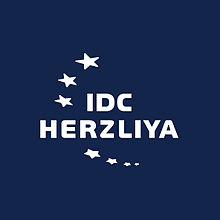
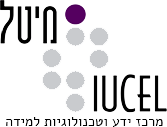
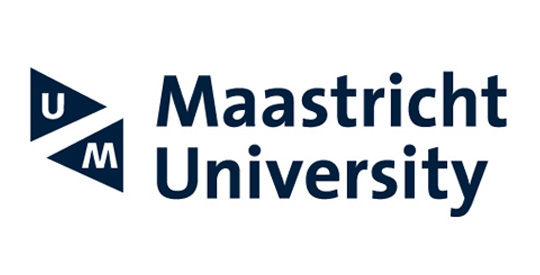 The Language Centre of Maastricht University provides language training and support courses for the university community and the external market. The Language Centre is divided into two sections: (1) Dutch and Modern Foreign Languages, which provides language courses in Dutch and 15 modern languages (e.g. German, Spanish, Italian, French, Russian, Chinese, Arabic). (2) English, which provides language and advanced training especially in courses that are integrated in Faculty programmes, and thus are variants of integrated content and language programmes (ICLHE (CLIL)). The English section also provides support and training for staff in English-medium instruction in Faculties and also to other institutions. The Language Centre is a member of CERCLES and NUT, and works with several other universities both in the Netherlands and abroad.
The Language Centre of Maastricht University provides language training and support courses for the university community and the external market. The Language Centre is divided into two sections: (1) Dutch and Modern Foreign Languages, which provides language courses in Dutch and 15 modern languages (e.g. German, Spanish, Italian, French, Russian, Chinese, Arabic). (2) English, which provides language and advanced training especially in courses that are integrated in Faculty programmes, and thus are variants of integrated content and language programmes (ICLHE (CLIL)). The English section also provides support and training for staff in English-medium instruction in Faculties and also to other institutions. The Language Centre is a member of CERCLES and NUT, and works with several other universities both in the Netherlands and abroad.


